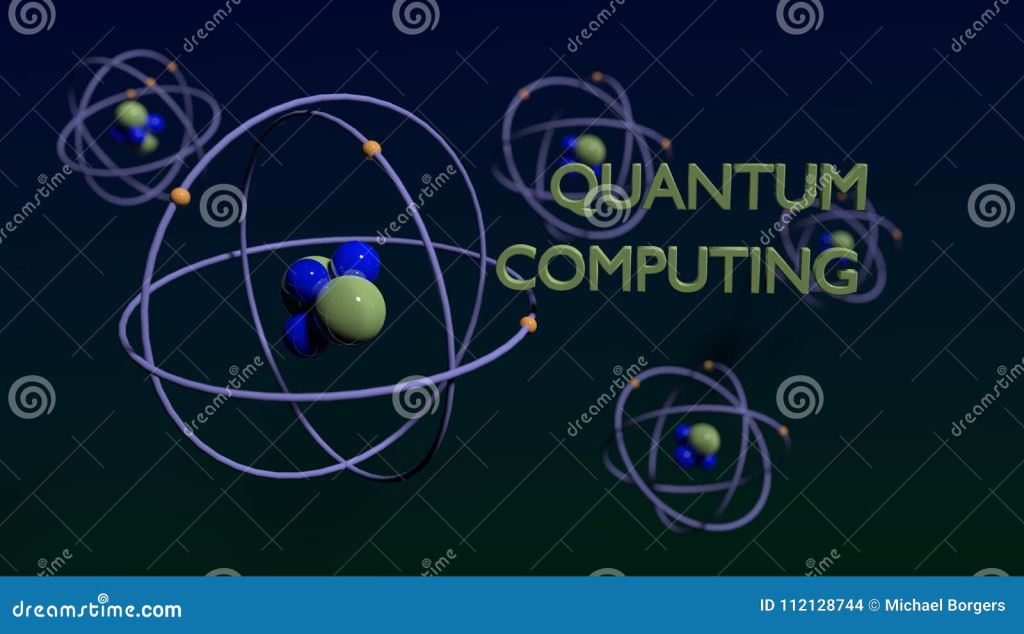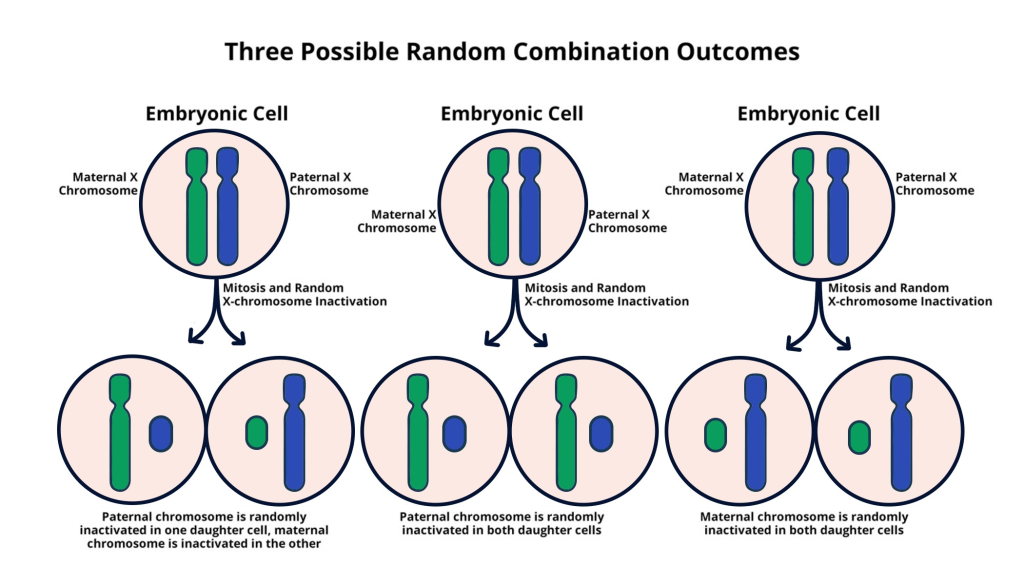
Quantum computing with molecules represents a transformative leap in technology, offering unprecedented potential for processing power and speed. Researchers have successfully harnessed the complexities of molecular structures to perform quantum operations, marking a new era in quantum computing. By deploying trapped molecules in ultra-cold environments, scientists have taken the first steps towards developing a molecular quantum computer, which could revolutionize computations across various fields. This innovative approach utilizes advanced techniques such as optical tweezers to manipulate molecules, enhancing the viability of quantum gates for these systems. The ability to utilize complex molecular interactions opens new avenues for high-speed computing, promising to outpace traditional methods and spark groundbreaking advancements in technology.
The exploration of molecular-based quantum processing is paving the way for a new frontier in computation. By leveraging intricate molecular arrangements, researchers are uncovering opportunities to perform rapid quantum calculations that were previously unattainable. Utilizing advanced methodologies, such as trapping ions and manipulating their states, scientists are crafting a framework for the next generation of quantum systems. This approach to quantum technology highlights the importance of manipulating matter at a molecular level, facilitating the development of sophisticated quantum gates and entanglement procedures. As investigations into these cutting-edge techniques continue, the potential of establishing a fully operational molecular quantum computer appears closer than ever.
Advancements in Molecular Quantum Computer Technology
The recent breakthrough in trapping molecules to perform quantum operations marks a significant leap towards the realization of molecular quantum computers. This innovative approach leverages the inherent complexity of molecular structures, utilizing ultra-cold polar molecules as qubits to encode and manipulate information. By successfully entangling sodium-cesium (NaCs) molecules, researchers have demonstrated that these structures can not only serve as effective quantum bits but also enhance the performance and efficiency of quantum gates. This development opens up new avenues for exploring the vast potential of molecular systems in quantum computing.
Unlocking the potential of molecular quantum computers involves overcoming the historical challenges associated with the intricate nature of molecular interactions. Previous attempts to utilize molecules in quantum systems were hindered by instability and unpredictability, which rendered coherent operations nearly impossible. However, advancements such as optical tweezers allow for the precise control and stabilization of molecular systems at ultra-cold temperatures, enabling reliable quantum operations. This breakthrough could pave the way for a new class of quantum technologies that harness the unique properties of molecules to execute complex computations.
Understanding Quantum Operations with Trapped Molecules
Quantum operations using trapped molecules are foundational to the construction of efficient quantum circuits, particularly in molecular quantum computing. The Harvard team’s achievement in performing an iSWAP gate using trapped NaCs molecules highlights the capacity of these systems to generate entanglement, a crucial resource for quantum algorithms. The ability to manipulate quantum states with high accuracy through dipole-dipole interactions is transformative, providing a glimpse into how molecular complexity can contribute to quantum information processing.
The intricacies of quantum operations with trapped molecules extend beyond the generation of entanglement. Researchers can leverage the unique interactions of polar molecules to develop more advanced quantum gates, improving the overall reliability and scalability of quantum systems. By exploring different molecular species and their respective interactions, scientists can enhance the effectiveness of quantum operations, ultimately leading to enhanced computational power and opening up new realms of possibilities in quantum research.
The Role of Quantum Gates in Molecular Systems
Quantum gates serve as the building blocks of quantum circuits, enabling the essential operations necessary for complex computing tasks. In molecular quantum computers, implementing these gates accurately is crucial, as they control the flow of quantum information between qubits. The research team’s success in utilizing the iSWAP gate demonstrates how molecular quantum computing can bridge gaps left by traditional quantum systems, where smaller particles have dominated the landscape. The precise execution of quantum gates would lead to significant advancements in algorithm efficiency and fault tolerance.
Moreover, quantum gates in molecular systems not only enable standard computational tasks but also facilitate innovative approaches to quantum algorithm design. The complexities of molecular interactions, when effectively harnessed, can create gates that manipulate multiple qubits simultaneously, unleashing the full potential of quantum computing. This research highlights the significant opportunities available in the realm of molecular quantum computing, where the intricate dynamics of molecules can be transformed into computational prowess.
Innovative Applications of Optical Tweezers in Quantum Computing
Optical tweezers represent a groundbreaking technology in the realm of quantum computing, enabling researchers to manipulate particles at microscopic scales with remarkable precision. In the context of the latest research, these tools have been employed to trap sodium-cesium molecules, allowing for detailed control over their quantum states. This methodology not only stabilizes the molecules but also opens new pathways for performing complex quantum operations, thereby enhancing the feasibility of molecular quantum computers.
The application of optical tweezers in quantum systems extends beyond merely trapping molecules; they allow researchers to investigate intricate interactions between them. By adjusting the alignment and interactions of the trapped molecules, scientists can optimize their quantum operations, leading to more reliable entanglement and improved fidelity in quantum computations. The use of optical tweezers thus represents a crucial advancement in the ongoing quest to harness the potential of molecular systems in quantum technology.
Enhancing Coherence in Quantum Molecular Systems
One of the primary challenges in quantum computing, particularly with molecules, is maintaining coherence—a delicate state essential for reliable quantum operations. The Harvard team’s groundbreaking work provides insights into how trapping molecules in ultra-cold environments can mitigate the instability that typically jeopardizes quantum coherence. By reducing the motion of molecules through precise trapping techniques, researchers can maintain the integrity of quantum states, which is vital for executing accurate quantum calculations.
Understanding and enhancing coherence in quantum molecular systems paves the way for future research and development in quantum computing. As scientists continue to refine methods for controlling molecular interactions, the potential for creating highly stable and efficient molecular quantum computers grows. This focus on coherence not only underscores the importance of stability in quantum operations but also signifies a pivotal step in advancing the field of quantum technology.
Exploring New Frontiers in Quantum Computing with Molecules
The exploration of molecular systems in quantum computing introduces a multifaceted approach to understanding complex quantum phenomena. By integrating the inherent properties of molecules into quantum algorithms, researchers can potentially transcend the limitations of traditional quantum systems. The recent success in utilizing trapped molecules as qubits demonstrates the exciting prospects for developing sophisticated quantum circuits that could outperform established technologies.
As molecular quantum computers continue to evolve, there is significant potential for myriad applications across various fields such as cryptography, material science, and computational chemistry. The unique attributes of molecular interactions could lead to breakthroughs in secure communication protocols and enhanced simulations of physical systems. The future of quantum computing may very well lie in harnessing the capabilities of molecular structures and their quantum properties, revolutionizing our understanding and application of quantum mechanics.
The Future of Quantum Computing: Implications of Trapped Molecules
The advancements made in trapping molecules for quantum operations signal a transformative shift in the landscape of quantum computing. As researchers like Kang-Kuen Ni and his team demonstrate the viability of molecular systems in quantum logic, we are on the cusp of a new era that could redefine the capabilities of computational technology. The implications of such advancements extend beyond academic research, presenting opportunities for real-world applications with far-reaching consequences.
Imagining the future of quantum computing with trapped molecules invites considerations about efficiency, speed, and the ability to solve complex problems previously deemed intractable. As molecular quantum computers become more mainstream, industries ranging from pharmaceuticals to finance stand to benefit from the unprecedented computational power and accuracy that these systems promise. This ever-evolving field holds the potential to change how we approach problem-solving in numerous domains, paving the way for a smarter and more connected world.
Challenges in Developing Reliable Molecular Quantum Computers
Despite the exciting prospects of molecular quantum computers, several challenges remain in developing these systems for reliable use. The complexity of molecular interactions poses significant hurdles in maintaining coherence and accurately implementing quantum operations. Researchers must continuously innovate to refine techniques in trapping and manipulating molecules, ensuring that the systems developed can consistently sustain entangled states necessary for effective computation.
Additionally, addressing the stability of molecular systems against environmental factors is crucial. The susceptibility of molecules to decoherence can disrupt quantum information processing, leading to erroneous computations. As a result, ongoing research is focused on developing better control mechanisms, such as advanced optical tweezers and novel materials, that enhance the robustness of molecular quantum computers. Overcoming these challenges will be essential for realizing the full potential of quantum computing.
Collaboration and Multidisciplinary Approaches in Quantum Research
The successful development of molecular quantum computers necessitates a collaborative and multidisciplinary approach, integrating fields such as chemistry, physics, and engineering. The groundbreaking work by the Harvard team exemplifies how cross-institutional collaboration can yield significant advancements in quantum technology. As researchers from diverse backgrounds unite their expertise, the potential for innovative solutions to complex problems increases multifold.
Furthermore, interdisciplinary cooperation fosters a conducive environment for exploring novel methodologies and technologies necessary for advancing quantum computing. By engaging physicists, chemists, and materials scientists, comprehensive insights into the intricacies of molecular interactions can lead to breakthroughs in qubit stabilization, coherence maintenance, and quantum gate implementation. The future of molecular quantum computing will greatly benefit from this unified approach, ultimately accelerating progress in the field.
Frequently Asked Questions
What is the significance of trapping molecules in quantum computing with molecules?
Trapping molecules for quantum computing with molecules allows researchers to utilize the complex internal structures of molecules as qubits, making a molecular quantum computer feasible. This method enhances the speed of quantum operations compared to traditional qubits used in systems dominated by trapped ions or superconducting circuits.
How do trapped molecules contribute to quantum operations?
Trapped molecules are crucial in quantum operations as they can be manipulated using electric dipole interactions. The ability to control their rotational alignment facilitates the creation of entangled states, which are essential for advancing molecular quantum computers.
What role do quantum gates play in molecular quantum computing?
In molecular quantum computing, quantum gates, like the iSWAP gate, enable the manipulation of qubits, allowing for operations that create entangled states. These gates function similarly to classical logic gates but take advantage of quantum superposition, enabling more complex computations.
What advancements did the Harvard research team achieve in quantum computing with molecules?
The Harvard research team successfully trapped sodium-cesium (NaCs) molecules to perform quantum operations for the first time, leading to the creation of a two-qubit Bell state with high accuracy. This breakthrough marks a significant advancement towards constructing a functional molecular quantum computer.
How do optical tweezers assist in the manipulation of trapped molecules for quantum operations?
Optical tweezers employ focused lasers to trap and manipulate molecules in ultra-cold environments, allowing researchers to stabilize the molecules’ intricate internal structures. This precision helps overcome the instability issues that typically hinder quantum operations.
What challenges have scientists faced in developing molecular quantum computers?
Scientists have faced challenges with molecular instability and unpredictability, which can disrupt quantum coherence necessary for reliable operations. However, by trapping molecules in a controlled ultra-cold environment, these researchers have begun to overcome such obstacles, paving the way for breakthroughs in quantum computing with molecules.
Why are molecular quantum computers considered an essential milestone in quantum computing?
Molecular quantum computers represent a crucial milestone because they leverage the unique properties of molecules, including their nuclear spins and complex structures, to enhance computational speeds and capabilities beyond what classical computers can achieve.
What potential futures do trapped molecules hold in the realm of quantum computing?
Trapped molecules have the potential to significantly advance quantum computing technology, enabling the exploration of new quantum algorithms and applications in various fields, such as medicine and finance, thanks to their unique quantum properties and ability to maintain coherence.
| Key Points |
|---|
| Harvard researchers successfully trapped molecules for quantum computing for the first time. |
| Utilized ultra-cold polar molecules as qubits to enhance quantum operations. |
| The iSWAP gate was implemented to generate entanglement between molecules with 94% accuracy. |
| This research paves the way for developing molecular quantum computers. |
| Molecules have complex structures that, if harnessed, could transform quantum computing. |
Summary
Quantum computing with molecules is a groundbreaking area that the Harvard research team has begun to explore, aiming to significantly enhance the capabilities of quantum technology. Their successful trapping of molecules demonstrates a vital leap toward utilizing complex molecular structures for quantum operations, positioning molecular quantum computers as a promising frontier in computational technology. This research opens new avenues for exploration and innovation, heralding potential advancements in various sectors, from medicine to finance.


